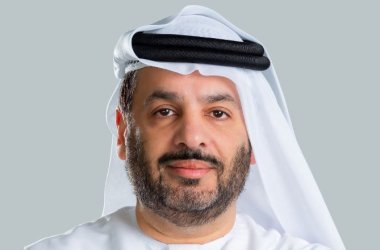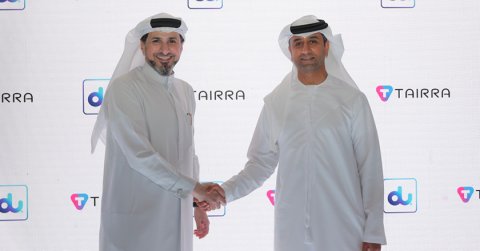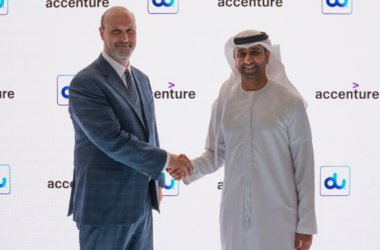 Mobile health is here and will change the way people in the Middle East receive health care and interact with their doctors.
Mobile health is here and will change the way people in the Middle East receive health care and interact with their doctors.
That was the clear message conveyed at the morning session of the mHealth conference, held at Dubai International Convention & Exhibition Centre today.
“The world is going digital. The world is going social. Phenomenon like Facebook, Twitter and other social networks, are creating huge impact on their own. It is a phenomenon we need to understand and leverage for the health care industry. We need to look at the way technology is changing and adapt it to the dialogue between patient and doctor,” said Santana Biswas, eHealth services director at du and chairman of the conference.
“Mobile health is really about leveraging mobility. However, we have to make sure it is health we focus on and the relationship between the patient and doctor, with mobility and mobile phones as the enabler. Penetration of mobile and internet in this region is one of the highest in the world. This is the digital society that we live in and we need to capitalise on this to help improve health care in this region,” Biswas added.
The notion of mHealth revolves around patients using their mobile phones to receive healthcare information and advice, connect them to the right information faster, and have their overall healthcare managed in a more efficient way.
“There is massive growth in mobile cellular networks in this region. This offers unique opportunities – we are living in a highly connected digital world in the GCC, and the UAE is leading that trend. We also see a convergence of technology – laptops, mobile phones, computers and televisions are all converging. This offers a unique and profound opportunity for mobile health and the existing health care delivery system,” said Dr Ayesha Abdullah, managing director at Dubai Health Care City (DHCC) and the keynote speaker at the conference.
“The health care delivery system and industry generally has been slow in changing and adapting to new technology. In essence we are trying to increase access to health and healthcare-related information. To have real-time public information and also to offer ongoing medical education and training will be key deliverables that we can get from mobile health,” she added.
Whilst the concept creates excellent opportunities, Dr Abdullah admits there will be some challenges.
“Strong partnerships among technology providers are critical to provide successful and scalable mobile health. Accessibility is another factor, the cost of these applications will be critical in the adoption. Also the design with the end-users in mind is very important, as is the long-term funding – different stakeholders have to buy in to the effectiveness of this application and must be willing to fund it long term,” she said.
“mHealth has to deliver measurable goals, and the collaboration between the different organisations involved in delivering the health care is very important. We also need to eliminate the fears of the patients themselves, like reassuring them they will not be losing contact with their physician and showing them how this will be effective,” she added.
There should be relevant training throughout the implementation, Dr Abdullah said, including ensuring there are people with clinical backgrounds involved that understand the users’ needs.
Despite these challenges, Dr Abdullah emphasised, it is vital the health care industry joins the digital trend to provide better care for the future.
“We live in an information technology era and there is no turning back. The young people are wired and they want to get all their information through mobile and internet, so when you develop solutions that cater to their needs, their future will be a better place,” she concluded.
Mobile health is here and will change the way people in the Middle East receive health care and interact with their doctors.
That was the clear message conveyed at the morning session of the mHealth conference, held at Dubai International Convention & Exhibition Centre today.
“The world is going digital. The world is going social. Phenomenon like Facebook, Twitter and other social networks, are creating huge impact on their own. It is a phenomenon we need to understand and leverage for the health care industry. We need to look at the way technology is changing and adapt it to the dialogue between patient and doctor,” said Santana Biswas, eHealth services director at du and chairman of the conference.
“Mobile health is really about leveraging mobility. However, we have to make sure it is health we focus on and the relationship between the patient and doctor, with mobility and mobile phones as the enabler. Penetration of mobile and internet in this region is one of the highest in the world. This is the digital society that we live in and we need to capitalise on this to help improve health care in this region,” Biswas added.
The notion of mHealth revolves around patients using their mobile phones to receive healthcare information and advice, connect them to the right information faster, and have their overall healthcare managed in a more efficient way.
“There is massive growth in mobile cellular networks in this region. This offers unique opportunities – we are living in a highly connected digital world in the GCC, and the UAE is leading that trend. We also see a convergence of technology – laptops, mobile phones, computers and televisions are all converging. This offers a unique and profound opportunity for mobile health and the existing health care delivery system,” said Dr Ayesha Abdullah, managing director at Dubai Health Care City (DHCC) and the keynote speaker at the conference.
“The health care delivery system and industry generally has been slow in changing and adapting to new technology. In essence we are trying to increase access to health and healthcare-related information. To have real-time public information and also to offer ongoing medical education and training will be key deliverables that we can get from mobile health,” she added.
Whilst the concept creates excellent opportunities, Dr Abdullah admits there will be some challenges.
“Strong partnerships among technology providers are critical to provide successful and scalable mobile health. Accessibility is another factor, the cost of these applications will be critical in the adoption. Also the design with the end-users in mind is very important, as is the long-term funding – different stakeholders have to buy in to the effectiveness of this application and must be willing to fund it long term,” she said.
“mHealth has to deliver measurable goals, and the collaboration between the different organisations involved in delivering the health care is very important. We also need to eliminate the fears of the patients themselves, like reassuring them they will not be losing contact with their physician and showing them how this will be effective,” she added.
There should be relevant training throughout the implementation, Dr Abdullah said, including ensuring there are people with clinical backgrounds involved that understand the users’ needs.
Despite these challenges, Dr Abdullah emphasised, it is vital the health care industry joins the digital trend to provide better care for the future.
“We live in an information technology era and there is no turning back. The young people are wired and they want to get all their information through mobile and internet, so when you develop solutions that cater to their needs, their future will be a better place,” she concluded.





